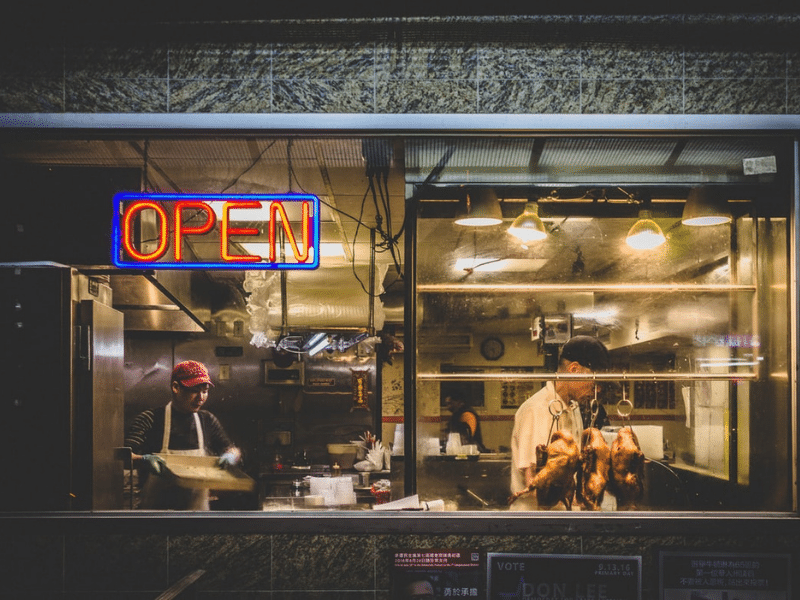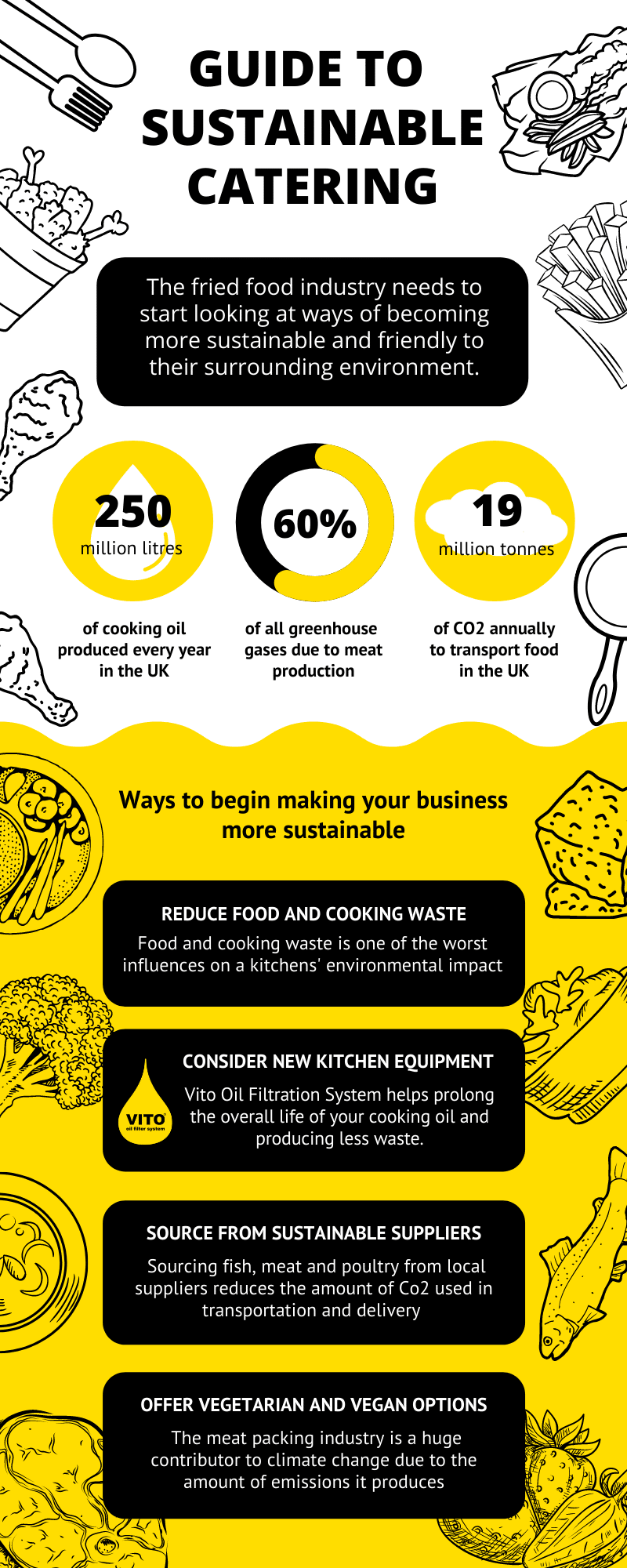
Catering in the hospitality industry is an essential part of food service however it can come with many environmental and social impacts. Within this, the fried food industry is huge and many companies need to start looking at ways of becoming more sustainable and friendly to their surrounding environment.
Working to make your catering business more sustainable can seem overwhelming and it may feel impossible to know where to start, but it doesn’t need to be. There are a few ways you can begin working towards making your company more sustainable:
- Reduce food and cooking waste
- Consider new kitchen equipment
- Source from sustainable suppliers
- Offer vegetarian and vegan options
Reduce Food and Cooking Waste
Food waste is one of the worst influences on a kitchen’s environmental impact. From having to throw away food after it’s been left unused and uneaten for a set period of time to customers biting off a little more they can chew in terms of portion control – Food wastage can be difficult to manage and you may find yourself throwing away more than you feel comfortable with.
It’s important to make sure you’re correctly estimating the amount of people you will serve in a set period of time as this can avoid unnecessary leftovers, as well as serving the correct amount on the plate.
There are food rescue organisations out there who can distribute any potential waste food to the community before or just at the cusp of the food being deemed unsellable. One company, Too Good To Go, can help you provide food at a discounted price to those looking for an easy way to buy your leftovers.
Another way to work towards good sustainability in your kitchen is to invest in a high quality composting system. This can turn spoiled and waste food into nutrient-dense soil and however you use this soil is down to your discretion. One great example of using this soil is to donate it to community gardens or a local school who can make use of compost.
Consider New Kitchen Equipment
Correctly storing and refrigerating your food can go a long way when it comes to preventing food waste. If it’s been a while since you last invested in something new for your commercial kitchen, it may be beneficial to upgrade.
Upgraded kitchen equipment can also mean you’re using a fridge or freezer which requires less power, making it more environmentally friendly than the previous bit of kit you used.
If you cook a lot with oil, you may realise that actually you’re disposing of more oil than is often necessary. Knowing when oil goes bad can be tricky, and a lot of kitchens tend to err on the side of caution here and bin the oil early.
Vito UK are sole importers of the Vito Oil Filtration System, a piece of equipment which is suitable for all types of commercial fryers including freestanding and fish & chip ranges. This portable filtration system helps to keep your oil cleaner and usable for longer, prolonging the overall life of your cooking oil and producing less waste in the long run.
Regular use of the Vito Oil Filtration System ensures that there is lower demand for agricultural goods and contributes to wildlife preservation. Not only this, but it helps to remove the carbonised particles, microparticles, suspended sediments and saves you money through fewer oil changes.
Source From Sustainable Suppliers
Knowing where your food comes from is key to a sustainable kitchen. Sourcing fish, meat and poultry from local suppliers reduces the amount of Co2 used in transportation and delivery.
This not only benefits your sustainability efforts but also gives you as a business something to shout about – being able to tell your consumers the journey of their food “from farm to fork” is a unique offering and something more people are asking for when they are choosing where to eat.
Sourcing ingredients directly from local farms and suppliers allows for seasonality in your menu offering, adding appeal and encourages customers to choose you over your competitors.
Offer Vegetarian and Vegan Options
It isn’t something people think about, but the meat packing industry is a huge contributor to climate change due to the amount of emissions it produces. And overall, meat production accounts for nearly 60% of all greenhouse gases. This is twice the amount of pollution compared to production of plant-based foods.
You can still offer and maintain an excellent nutritional value – with foods such as quinoa, tofu, chickpeas and various types of beans being great meat replacements and can be used to create quite unique menu items to add some variety to your menu.
Fast food companies are starting to add brand tie-ins to their menus with popular meat alternatives being provided in conjunction with producers such as Beyond Meat, Quorn and Impossible Foods. Companies such as Greggs with their vegan sausage roll (Quorn) and McDonald’s with the McPlant (Beyond Meat) are seeing success with adding plant based options.
Working towards sustainability is a huge step for businesses to start taking, however it isn’t an impossible task especially when it comes to your commercial kitchen. For more information on how we can help you with cooking oil sustainability, or for more information on the products we provide, please get in touch with us.



